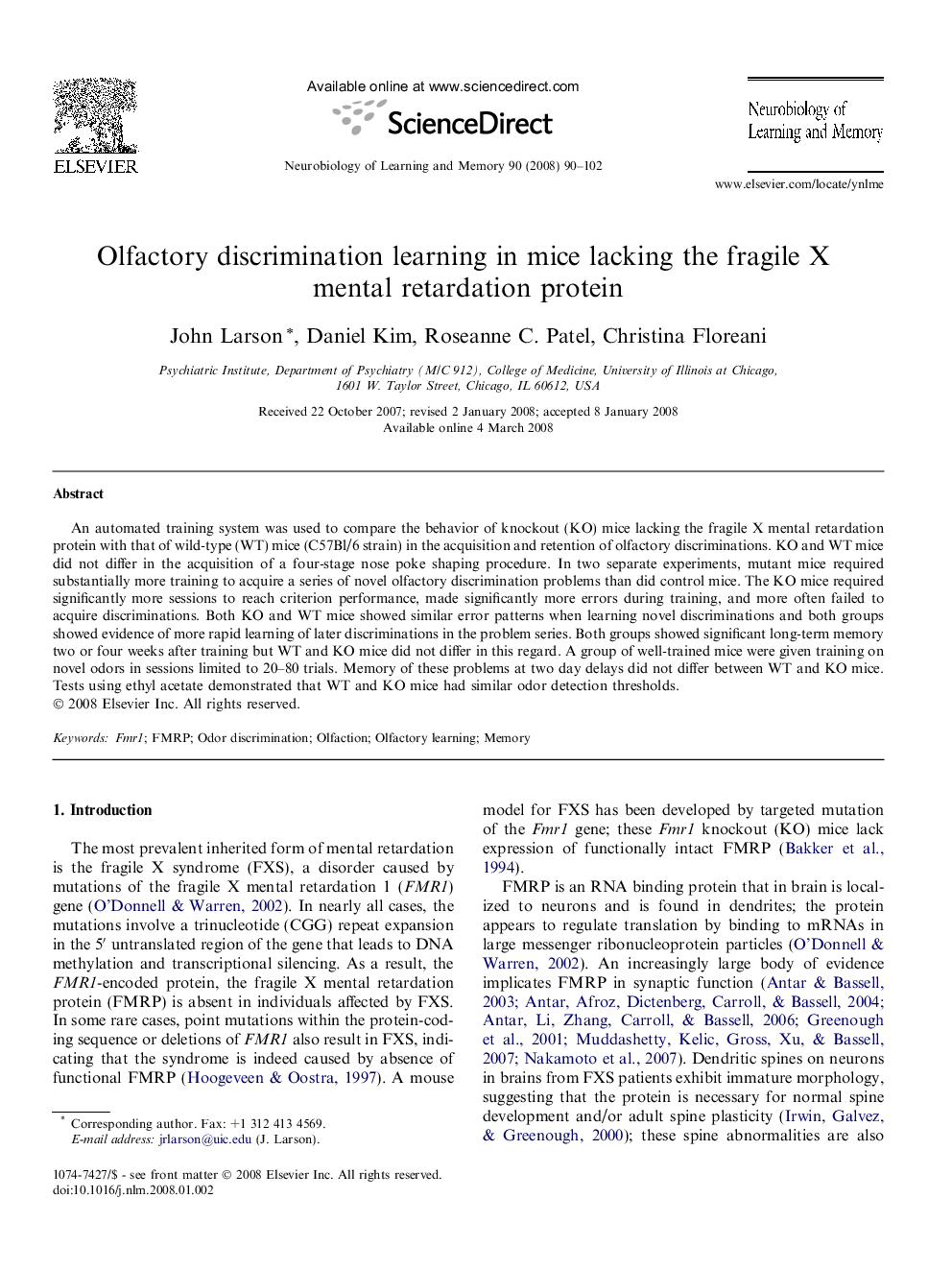| کد مقاله | کد نشریه | سال انتشار | مقاله انگلیسی | نسخه تمام متن |
|---|---|---|---|---|
| 937177 | 1475212 | 2008 | 13 صفحه PDF | دانلود رایگان |

An automated training system was used to compare the behavior of knockout (KO) mice lacking the fragile X mental retardation protein with that of wild-type (WT) mice (C57Bl/6 strain) in the acquisition and retention of olfactory discriminations. KO and WT mice did not differ in the acquisition of a four-stage nose poke shaping procedure. In two separate experiments, mutant mice required substantially more training to acquire a series of novel olfactory discrimination problems than did control mice. The KO mice required significantly more sessions to reach criterion performance, made significantly more errors during training, and more often failed to acquire discriminations. Both KO and WT mice showed similar error patterns when learning novel discriminations and both groups showed evidence of more rapid learning of later discriminations in the problem series. Both groups showed significant long-term memory two or four weeks after training but WT and KO mice did not differ in this regard. A group of well-trained mice were given training on novel odors in sessions limited to 20–80 trials. Memory of these problems at two day delays did not differ between WT and KO mice. Tests using ethyl acetate demonstrated that WT and KO mice had similar odor detection thresholds.
Journal: Neurobiology of Learning and Memory - Volume 90, Issue 1, July 2008, Pages 90–102